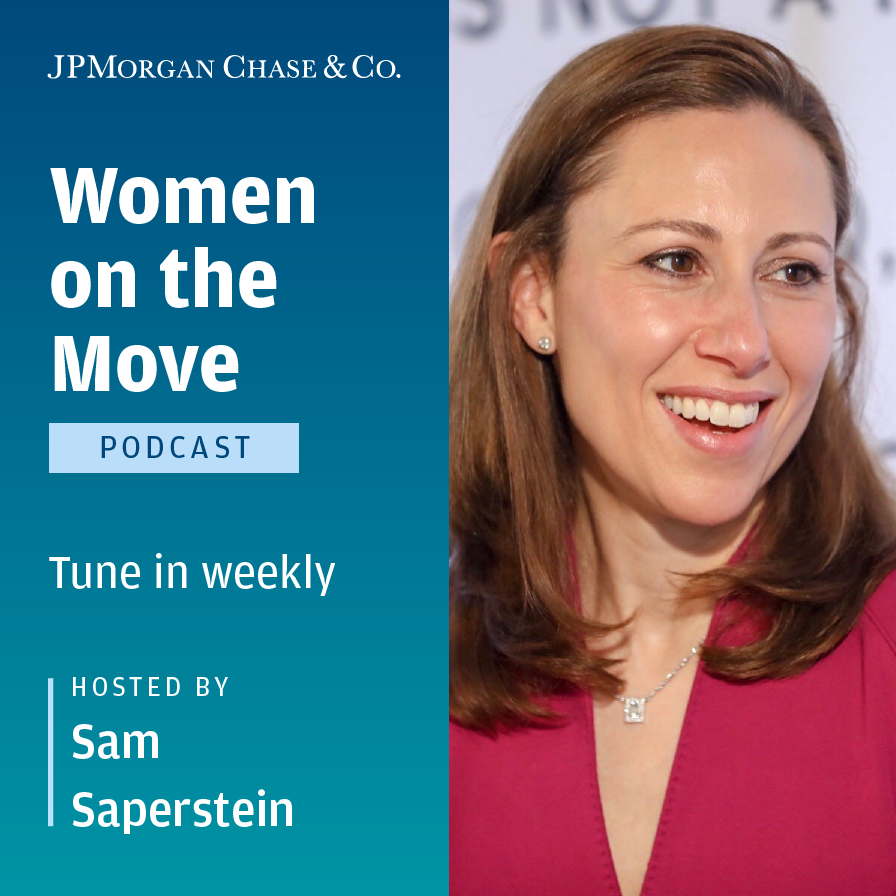Bringing storytelling to corporate marketing—and Web3—with Warrior Love Productions’ Melissa Jun Rowley
Description
In this Women on the Move Podcast episode, host Sam Saperstein sits down with Melissa Jun Rowley, founder and CEO of Warrior Love Productions. Melissa shares her journey as a storyteller and how she came to realize her power and start her company. Along the way, she’s had a big impact on the Web3 space and has helped drive change at the intersection of social impact and technology.
Telling the story for impact
Melissa started Warrior Love Productions, a social impact strategy studio and marketing consultancy, nearly three years ago after her career in journalism—including stints with CNN and the Associated Press—led her to recognize a business need for internal corporate storytelling. She describes herself as a kind of internal editorial director, weaving storytelling into content strategy, marketing, thought leadership and other areas. “Our sweet spot is the intersection of technology and social impact,” she tells Sam. “So either companies working at that convergence or companies specializing in tech or company culture [who] really want to bring more social impact or climate positivity into what they're doing.”
Melissa says Warrior Love Productions works with many start-ups, perhaps because they’re a start-up themselves. “My journey into social innovation started when I began meeting entrepreneurs and founders who were harnessing technology for social good,” she says. “I was a tech journalist for a number of years, but didn't really feel passionate about it until I started meeting those people [who are] harnessing or creating technology for social impact, a lot of them creating incredible products and services.”
To those companies, Warrior Love Productions offers support in both telling stories with clarity and confidence, as well as helping them learn to drive deeper impact. She notes that while many founders have compelling stories and focused purpose, they don’t always see the value of those in their branding. “They just don't necessarily have the capacity to put their storytelling at the forefront of what they're doing,” Melissa says. “They're busy having an impact, they're busy getting customers, they're busy making deals.”
Moving into Web3
Melissa says that while she wasn’t initially drawn to Web3 and the idea of blockchain transactions, she quickly changed her mind when she realized how essential the idea of community was to the Web3 space. She says she was writing about blockchain as a journalist as early as 2014 without fully understanding its impact, but then she started to see it from a social impact perspective. “That’s really what attracted me to Web3,” she explains. “Web3 is going to not only survive, but potentially be successful and thrive, if there is a very strong community that vouches for one another, that values one another's opinions, and moves together collectively and consciously in that way.”
When she first started reporting on Web3 and blockchain investment, Melissa says her sources were mainly white papers for investors. But she knew that in order to tell the story in a way that the general public could understand and resonate with, she needed to see firsthand a “real-life tangible blockchain-based solution.” She found one in 2018 at a refugee camp on the border of Jordan and Syria, which had a grocery store that ran on blockchain. She contacted the World Food Program, who ran the project, and arranged a visit. “Basically, the refugees go to their grocery store to shop for themselves or their families,” she explains. “They walk into the store and rather than having to show a card that does a cash transfer, the biometric system comes up, scans their digital identity, and then the money's transferred immediately. And the reason the World Food Program wanted to do that was because so much money was going to banks as the third party to facilitate this. But because this is done on blockchain, there's no third party involved.”
Flash forward a fe
More Episodes
At JPMorgan Chase’s eighth annual Women's Leadership Day, Byna Elliott, the firm’s Global Head of Advancing Black Pathways, sits down with Alicia Boler Davis, CEO of Alto Pharmacy and JPMorgan Chase Board Director. They discuss Alicia's extraordinary career, from her engineering roots at GM to...
Published 12/21/23
Published 12/21/23
As head of community and business development at Chase, Diedra Porché has a deep passion for understanding the needs of the people the bank is seeking to serve. In this week’s episode of Women on the Move, she joins host Sam Saperstein to discuss her role and how she empowers local communities...
Published 12/14/23


